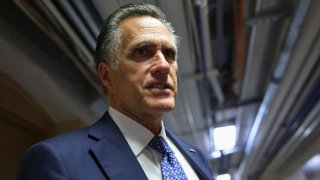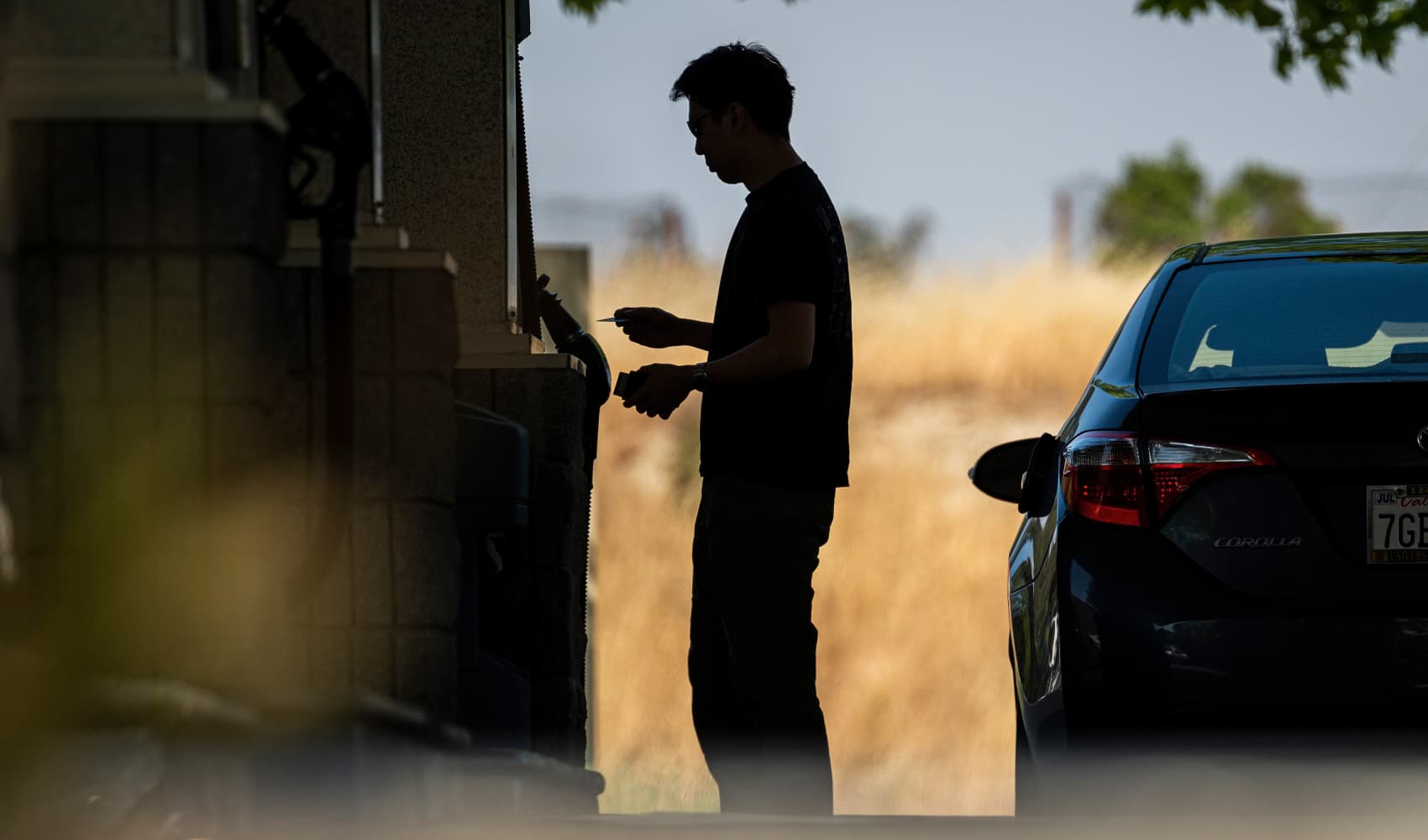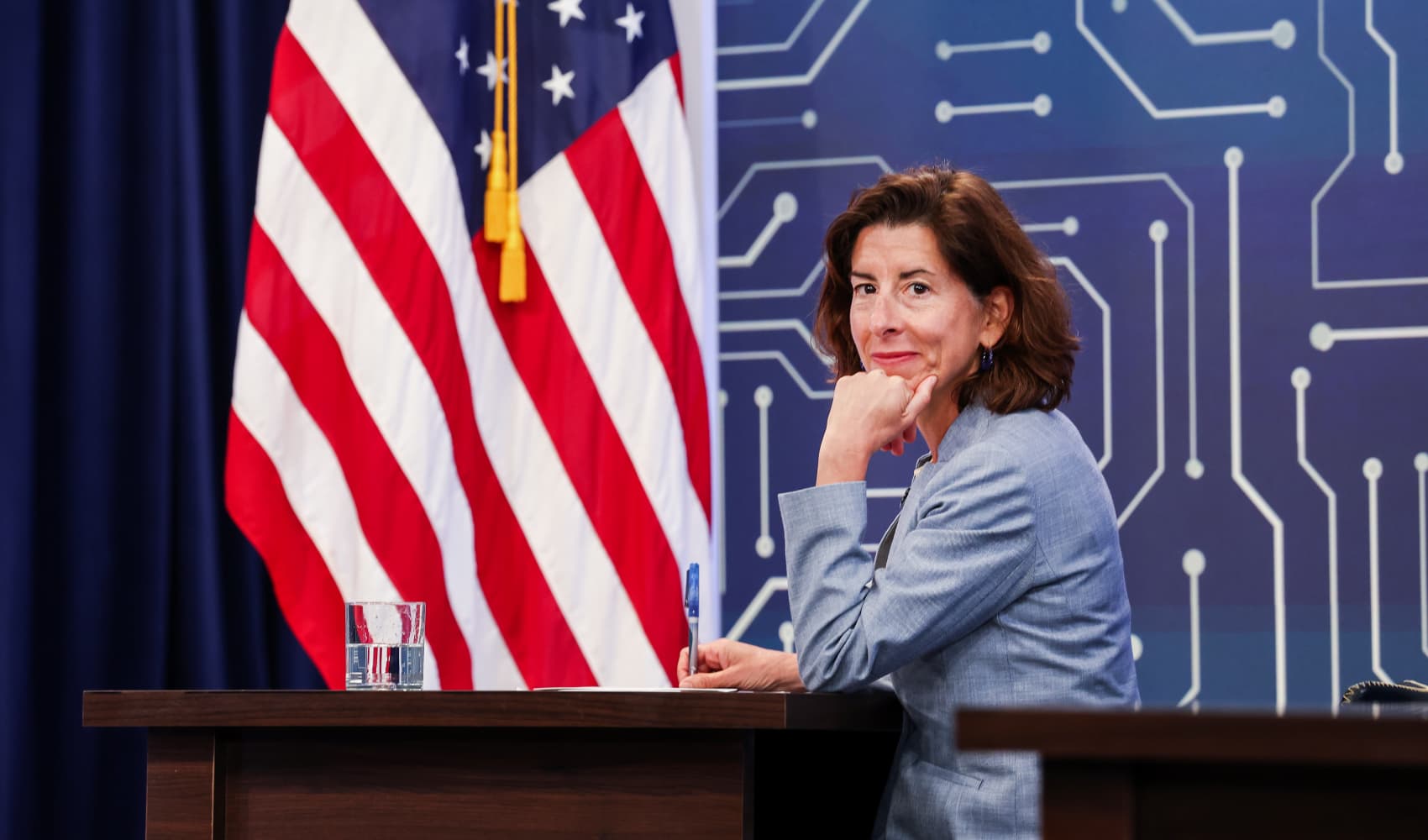
- House and Senate groups from both parties are working on infrastructure plans, but neither contingent has put forward a proposal on how to pay for the investments.
- Disagreements on how to offset spending could derail lawmakers' efforts, as they did when President Joe Biden's talks with Republican Sen. Shelley Moore Capito collapsed.
- Biden and his aides will engage with negotiators while the president is in Europe for the G-7 summit.
Bipartisan groups in Congress will try to craft an infrastructure bill after talks between President Joe Biden and Republicans collapsed.
But the lawmakers are running into one of the issues that tripped up the president and Sen. Shelley Moore Capito, R-W.Va.
Bipartisan negotiators in the House and Senate have not come near a consensus on how to pay for infrastructure investments. An agreement on how to offset spending could pose the biggest challenge to striking a deal as Biden and Democratic leaders decide whether they can pass a bill with Republican votes or want to approve a package on their own through budget reconciliation.
Get a weekly recap of the latest San Francisco Bay Area housing news. Sign up for NBC Bay Area’s Housing Deconstructed newsletter.
A group of Democratic and GOP senators and the bipartisan House Problem Solvers Caucus are trying to put together possible compromises. Both contingents have an idea of what they want to put in an infrastructure bill. Neither has agreed on funding methods, as Republicans oppose Biden's plan to hike corporate taxes and Democrats resist proposals to charge new consumer fees or repurpose coronavirus aid funds.
Tax increases are "off the table," Sen. Mitt Romney, a Utah Republican involved in the talks, told reporters Wednesday. As he acknowledged the GOP would not back any tax hikes, Sen. Jon Tester, a Montana Democrat who has joined in the negotiations, said Wednesday that deciding how to pay for infrastructure "is probably the toughest part about this, from my perspective."
Money Report
Biden plans to call lawmakers about developing infrastructure plans while he is in Europe for the G-7 summit this week, White House press secretary Jen Psaki said Tuesday. Key aides will also meet with members of Congress in person.
The bipartisan efforts come as Democrats set the groundwork to pass pieces of Biden's $2.3 trillion infrastructure plan on their own. Psaki said Biden spoke to Senate Majority Leader Chuck Schumer, D-N.Y., about the need to work on a budget resolution — which would give Democrats the chance to approve Biden's economic and tax policies on their own in the Senate.
The Democratic-led House Transportation and Infrastructure Committee will also consider a five-year surface transportation funding bill on Wednesday. As the legislation moves forward, it could become a vehicle for some of the president's infrastructure priorities.
Schumer said Tuesday that Democrats are pursuing a "two-path proposal" as bipartisan talks proceed.
A Problem Solvers Caucus plan released Wednesday appears to come closer to Biden's goals than the last Republican offer he rejected. It calls to spend $1.25 trillion — including about $762 billion in new funds — on highways, roads, bridges, railways, electric vehicles and broadband, among other initiatives, according to NBC News.
Biden has asked for at least $1 trillion in new spending above the baseline set by existing policy.
Meanwhile, the Senate group led by lawmakers including Romney and Sens. Rob Portman, R-Ohio, Joe Manchin, D-W.Va., and Kyrsten Sinema, D-Ariz., has not announced an overall price tag. But senators emerged from a Tuesday meeting nearing agreement on spending for specific programs, Romney told reporters.
They appear further from a consensus on how to pay for the plan. The Problem Solvers Caucus aims to discuss potential tools to cover infrastructure costs with the Senate group, according to NBC.
Romney noted that the Senate negotiators have work ahead to win broader support for the proposal.
"This group is making a lot of progress, but we have a total of 100 senators, not eight," he said.
Other disagreements could arise during bipartisan talks. The Problem Solvers Caucus proposal does not include Biden priorities such as care for elderly and disabled Americans and upgrades to housing and schools.
Some progressives in Congress have also warned Biden not to cut too much spending from his plan in order to win Republican support.
Rep. Alexandria Ocasio-Cortez, D-N.Y., appeared to tie the infrastructure talks to a handful of Democrats' reluctance to use budget reconciliation or scrap the filibuster to pass party priorities. She tweeted Wednesday that Biden and Senate Democrats "should take a step back and ask themselves if playing patty-cake" with Republicans is worth a lack of action on legislation to hike taxes on the wealthy and corporations, protect voting rights and curb climate change.






